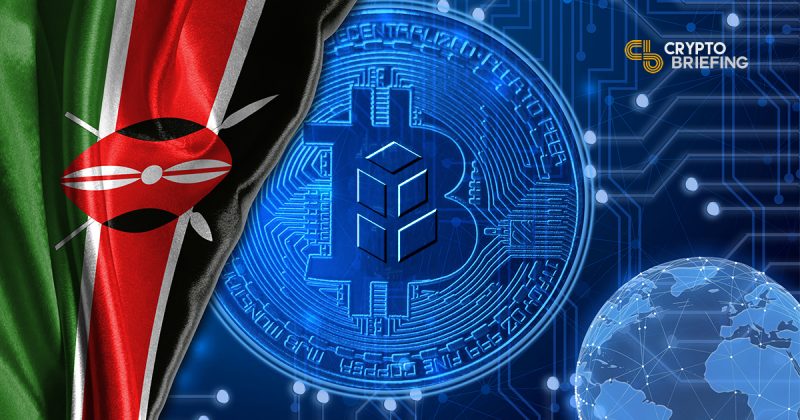Bloomberg Bullish on Bancor?

Share this article
It’s not every day that we find ourselves linking to Bloomberg, much less quoting it approvingly. The news site has butted quite a few heads in the crypto community, as Crypto Briefing has previously reported.
This week Bloomberg Businessweek ran something a little different— a lengthy, and illuminating report on the progress of financial technology in developing communities, where trade is hampered by the lack of access to ready cash. “In emerging markets such as Kenya,” Bloomberg says, paraphrasing a World Bank economist, “the relatively shallow reach of traditional financial systems and institutions means there’s less resistance to new financial technology, including blockchain.”
A peer to peer currency…on paper
The story begins with “community currencies” like Gatina-pesa, a locally-printed paper voucher created for neighborhoods where cash is scarce. “[A]bout 20 percent of parents now pay the fees for their children’s education in community currency,” Bloomberg reports, noting:
Fewer kids are dropping out, according to Wanjala. “We as a school noticed that there were a lot of challenges when it comes to paying school fees, because most of the parents run small businesses,” he says. “Whenever we have a parents’ meeting, we tell them about the community currency.”
But this would not be a crypto story, except for the fact that “community money” is now stepping on the blockchain. Thanks to a $5 million contribution from Bancor, a new pilot program is turning local scrips into digital currencies, sidestepping the problems of physical cash altogether.
The advantages of community currency highlight one of the paradoxes of the money system: while a hundred-dollar-bill has the same paper value as ten tens, the smaller units go a lot further. In cash-strapped communities, the lack of small denominations cause real inefficiencies to an already high-friction market.
Quoting an economist, Bloomberg adds:
Ruddick says the program has brought concrete benefits to these communities, including more students staying in school because their parents can pay the fees, better food security because families can buy from the local market with the vouchers, and an increase in local trade, according to user surveys.
Digital cash—which is infinitely divisible as well as harder to lose in the laundry—adds even more efficiency, by making it easier to find change for small trades. Crypto Briefing has previously reported on Kuvacash, a similar program to increase liquidity in cash-strapped Zimbabwe. Binance’s surprise success in Uganda – where the exchange signed up some 40,000 users in its first week – is a sign that some Africans are a bit more bullish on crypto than Bloomberg’s editors.
But crypto isn’t the only player in the world of digital money, and there’s plenty of competition from centralized solutions like m-Pesa. Bancor’s work, most likely, is already cut out for it.
All the same, it’s an encouraging sign that the Bancor project is already solving problems in developing communities, and that the progress is so evident that even Bloomberg is reporting on them. While there’s no guarantee of long-term success, there are many potential advantages of a lightweight, distributed ledger in the world of mobile payments.
Some things, with apologies to George Orwell, are true even if Bloomberg says them.
The author is invested in digital assets, but none mentioned in this article.
Share this article
